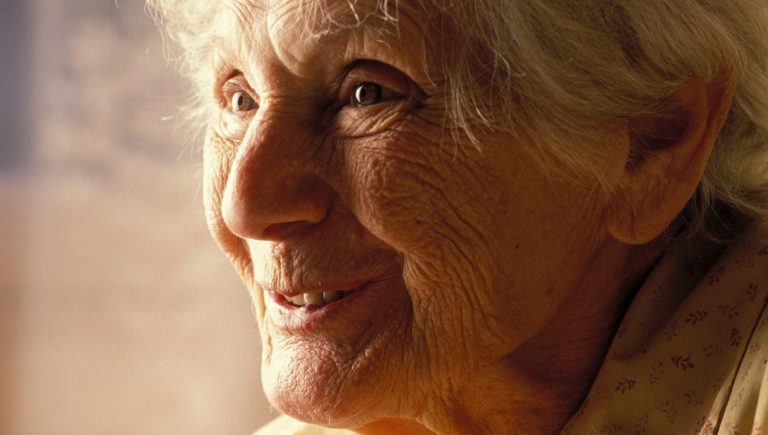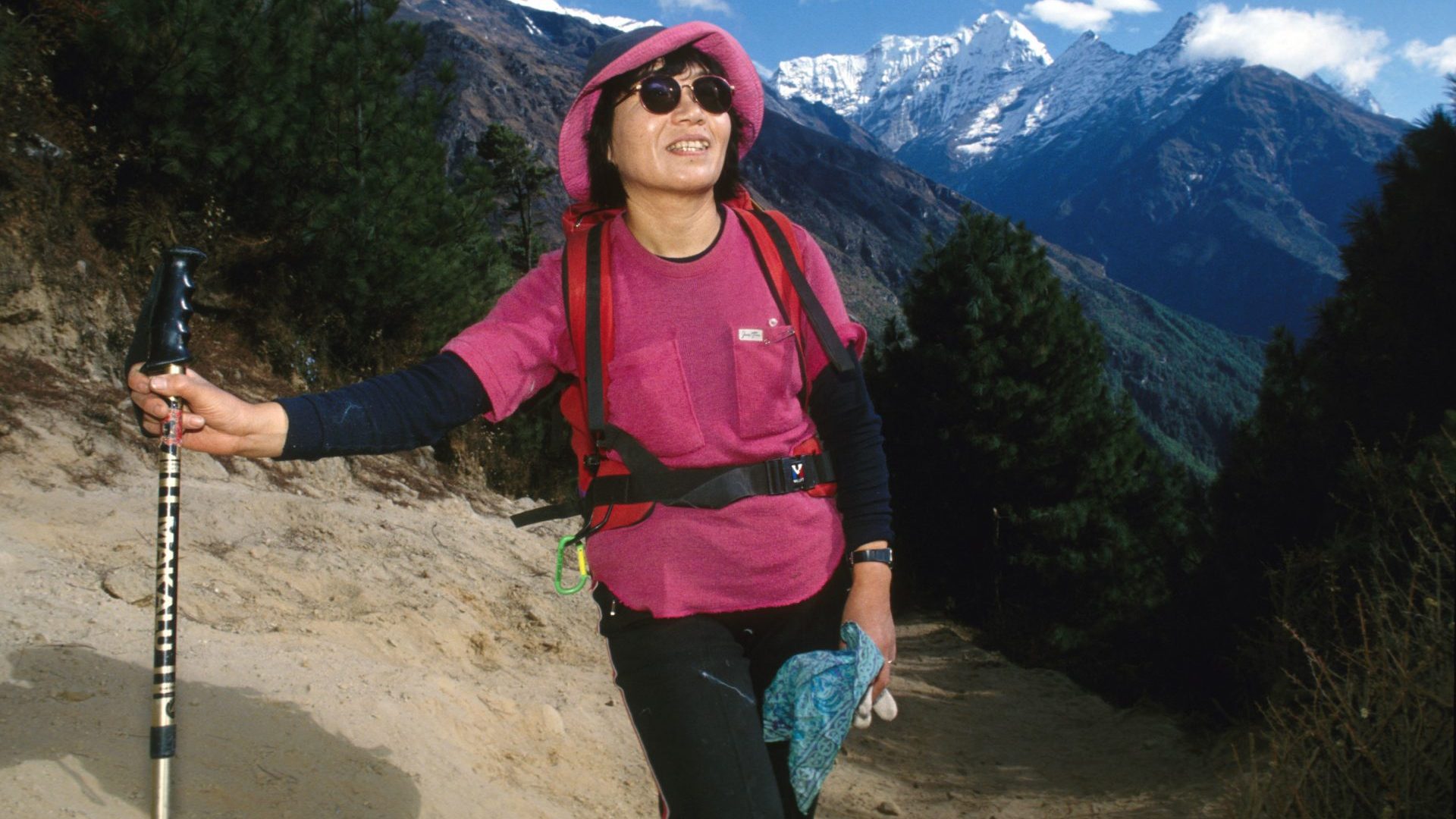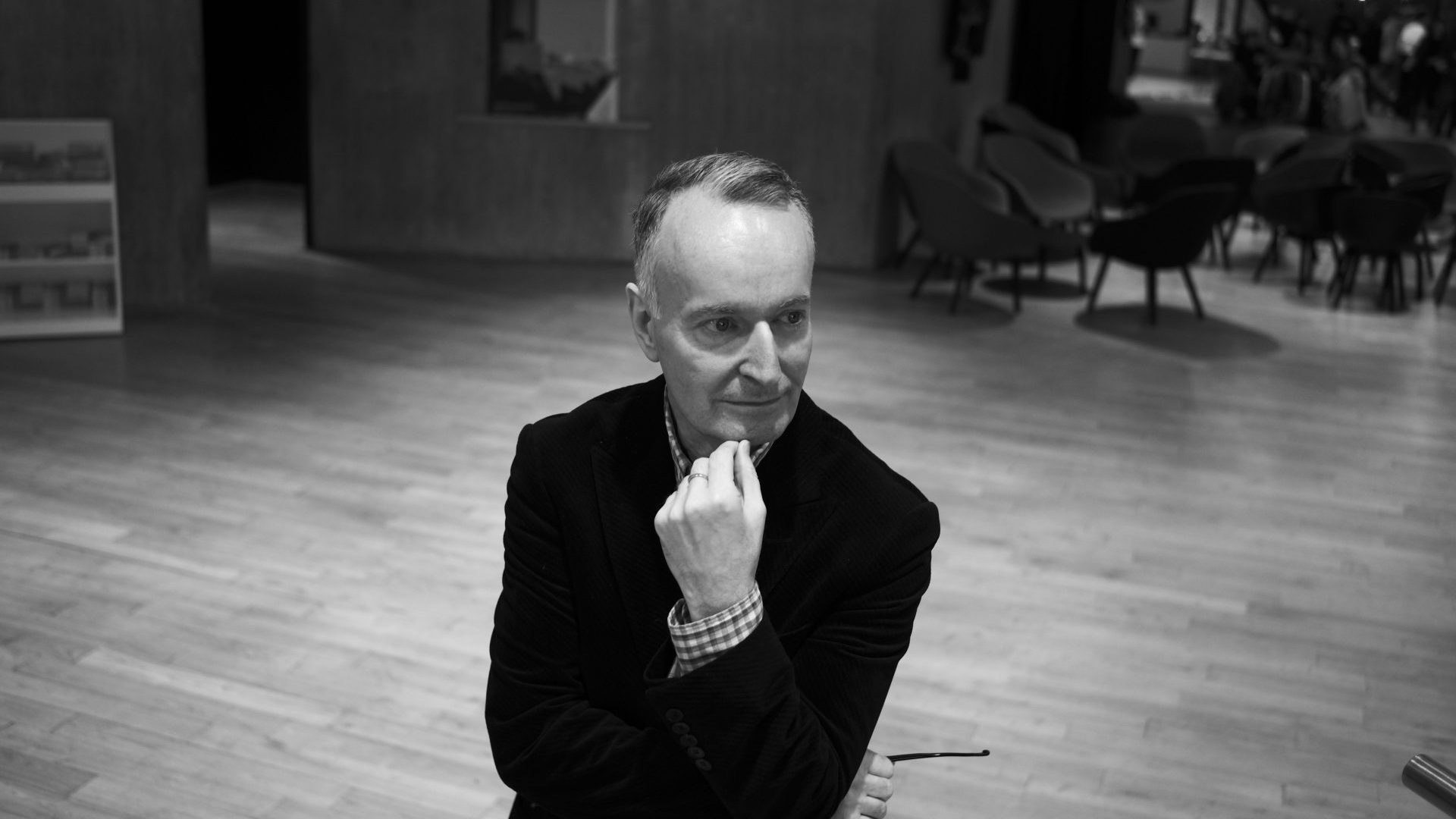When she got to the top of the world, it was half past midday on May 16, 1975. At the summit of Mount Everest, Junko Tabei looked down, then looked inside herself. She felt no sense of conquest or elation.
“There was no enjoyment – just relief,” she said. “I was very happy that I didn’t have to climb any more.”
When the next day, the Japan Times featured her on their front page, hailing her as the first woman to successfully climb the world’s highest mountain, a new challenge began. She was an instant celebrity. Without an agent or assistant she handled the acclaim on her own. “Receiving faxes,” she said, “makes me more tired than climbing mountains.”
After weeks of brutal effort, despair and near-death, the final ascent on that day in May had taken six hours. By Tabei’s side was Ang Tshering Sherpa, one of the leading figures in Nepalese mountaineering, whose father had prepared Sir Edmund Hillary for expeditions 20 years previously.
At the highest point on the planet, she unfurled a Japanese flag and posed for celebratory photographs. The two stayed at the top of the mountain for 50 minutes before taking an equally treacherous route back down.
Tshering remembers the moment they reached the summit as “determination, solidarity and shared triumph at the top of the world.” Although giving her companion huge amounts of praise and gratitude, the moment of euphoria felt absent for Tabei. This was not how it was meant to happen. It should have been a group of 15 of them.
Her fellow climbers, who had worked so hard for months, had been unable to make it to the very top. Tabei should have been planting the Japanese flag side by side with her friends, her teammates, her fellow female mountaineers.
Their journey had been almost ended altogether 12 days previously, when their camp was hit by an avalanche. Tabei was buried under the snow. She could barely breathe and lost consciousness. “Suddenly, the image of my three-year-old daughter appeared before my eyes. I have to stay alive, for my daughter, for myself, for everybody,” she said.
Recuperation was difficult, with bleak weather conditions and low morale. “As soon as I knew everyone was alive,” Tabei said, “I was determined to continue.”
Suggested Reading

Emilie Schindler, one half of a team of equals
With only enough oxygen for one person to make it to the top, the group nominated Tabei. It had to be her. She was the leader, the campaigner, the one who had made this all happen.
She had been the one to strike deals with a television network and the Yomiuri Shimbun, Japan’s largest newspaper, to sponsor them. Without their help, they would not have set their first foot on the mountain. She had overcome every obstacle that had been thrown at her. “When we asked for financial support for our expedition, I was told many times: ‘women shouldn’t be climbing Everest … why don’t you just take care of your kids?’”
This had not been the first group of loyal mountaineering enthusiasts to have joined Tabei on her adventures. Years earlier, in 1969, discouraged by the sexism she’d suffered in mountain climbing circles, she founded the Joshi-Tohan Club, a women’s mountaineering club. This group of friends had one goal: “Let us go on an overseas expedition by ourselves!’
As a group they climbed, explored, bonded. They were the first all-female team to summit Annapurna III, the 42nd-highest mountain in the world. Everest was their ultimate goal, but their applications were unsuccessful.
By the time the Everest plan became a reality, many of the original members had left, losing interest or unable to commit further time, energy or money. Undeterred by the withdrawals, Tabei set out to assemble a brand-new team. Her recruitment drive attracted people who shared her vision. They set out on the ultimate challenge: to climb Mount Everest.
Once it had been conquered, Tabei might have settled into an easy celebrity. It was a time when the world was looking for female heroes; the United Nations had already proclaimed 1975 as “The International Year of Women”, and it was also the year when International Women’s Day was first formally recognised. A month after Tabei stood on top of the world, 90% of women in Iceland took the day away from their household chores, their jobs and their childcare to protest against wage inequality, 25,000 women gathering for a rally in Reykjavík.
The Japanese media were championing Junko Tabei to be part of this celebration of female achievement. Tabei herself was less keen. “I did not intend to be the first woman on Everest,” she said, making it clear she’d prefer to be remembered as the 36th person to have climbed Everest.
Instead, Tabei, who climbed her first mountain at the age of 10 on a school expedition to Mount Nasu, continued to quietly do what she loved. She successfully scaled Mount Kilimanjaro and Europe’s tallest peak, Mount Elbrus. Mountains were her life. It was when climbing a mountain that she met her husband.
Those initial trips had been funded by giving piano lessons in her home, and after unpleasant and unsupportive encounters with the sponsors of her Everest trip, she went back to basics, funding her trips from her own hard-earned income as well as bank loans.
“Life is not for ever,” Tabei, who died at the age of 77, once said. “I don’t think people should leave behind a fortune, or things. When I die, I want to look back and know that my life was interesting. I want to leave behind a personal history.”



